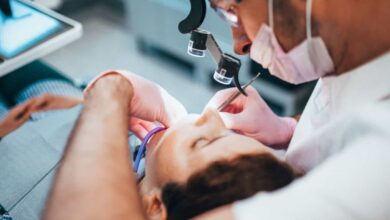Discover the Best Options for Teeth Whitening in Atlanta: Your Guide to a Brighter Smile
Teeth Whitening in Atlanta: Understanding Teeth Whitening Options

When you’re thinking about teeth whitening in Atlanta, it’s good to know what’s out there. There are different ways to get a brighter smile, and each has its own pros and cons. Knowing your options helps you pick what works best for you.
Overview of Professional Treatments
Professional teeth whitening, often done by a dentist in Atlanta, usually involves stronger whitening agents than what you can buy in stores. These treatments can give you faster and more noticeable results. The dentist can also protect your gums and other soft tissues during the process, reducing the risk of sensitivity. They might use laser or light activation to speed up the whitening.
At-Home Whitening Solutions
If you prefer to whiten your teeth at home, there are several options. These include whitening strips, gels, and custom trays from your dentist. At-home solutions are generally more affordable than professional treatments, but they may take longer to show results. It’s important to follow the instructions carefully to avoid any potential side effects, like tooth sensitivity or gum irritation.
Comparing Effectiveness of Methods
When it comes to teeth whitening, not all methods are created equal. Professional treatments tend to be more effective and provide quicker results, but they also come with a higher price tag. At-home solutions are more convenient and budget-friendly, but they may require more time and effort to achieve the desired level of whiteness. Here’s a quick comparison:
| Method | Effectiveness | Convenience | Cost |
| Professional | High | Low | High |
| At-Home | Moderate | High | Low |
Choosing the right whitening method depends on your individual needs and preferences. Consider factors like your budget, desired results, and time commitment when making your decision. Consulting with a dentist in Atlanta can help you determine the best option for your specific situation.
Here are some things to consider when choosing a method:
- How quickly do you want to see results?
- What’s your budget for teeth whitening?
- Do you have sensitive teeth or gums?
Safety Considerations in Whitening
Okay, so you’re thinking about getting your teeth whitened. Awesome! But before you jump in, let’s talk safety. It’s not all sunshine and pearly whites; there are a few things to keep in mind to make sure you don’t end up with sensitive teeth or irritated gums.
Potential Risks of Whitening
Whitening can be pretty safe, but there are some potential downsides. The most common issues are tooth sensitivity and gum irritation. Some people might experience discomfort during or after the treatment. Over-the-counter products, if not used correctly, can also damage your enamel. It’s like anything else – moderation and following instructions are key. Also, if you have fillings, crowns, or other dental work, whitening might not affect them the same way it affects your natural teeth, leading to uneven coloring. Not ideal!
Consulting with a Dental Professional
Seriously, talk to your dentist before you even think about whitening. They can check your teeth and gums to make sure you’re a good candidate for whitening. They can also recommend the best method for you, considering your specific needs and dental history. Plus, they can monitor the process to minimize any risks. Think of it as getting a professional opinion before starting a DIY project – it can save you a lot of headaches (or toothaches) later.
Maintaining Oral Health During Treatment
While you’re whitening, it’s super important to keep up with your oral hygiene. Brush twice a day, floss daily, and maybe even use a fluoride rinse. This will help protect your teeth and gums from any potential irritation caused by the whitening agents. And, of course, avoid those staining foods and drinks (coffee, tea, red wine – the usual suspects) as much as possible. Think of it as giving your teeth a little extra TLC during the process.
It’s important to remember that everyone’s teeth are different, and what works for one person might not work for another. That’s why consulting with a dentist is so important – they can help you create a personalized whitening plan that’s safe and effective for you.
Here’s a quick rundown of things to consider:
- Sensitivity: Use toothpaste for sensitive teeth.
- Gum Irritation: Follow product instructions carefully.
- Enamel Damage: Don’t overdo it with whitening treatments.
Duration of Whitening Results
Factors Affecting Longevity
Okay, so you’ve got your teeth sparkling white, awesome! But how long will it last? Honestly, it’s not forever. Several things play a part. First off, what you eat and drink makes a HUGE difference. Coffee, tea, red wine – they’re all stain culprits. Smoking? Yeah, that’s a big no-no if you want to keep your smile bright. Also, how well you take care of your teeth matters. If you’re slacking on brushing and flossing, those pearly whites won’t stay that way for long. The type of whitening treatment you had also influences how long the results stick around. Professional treatments generally last longer than over-the-counter stuff.
Expected Timeframes for Results
So, let’s talk numbers. With professional whitening, like what you get at the dentist’s office, you can usually expect your teeth to stay noticeably whiter for anywhere from six months to two years. That’s a pretty wide range, I know, but it really depends on those factors we just talked about. At-home treatments? They might give you a boost, but don’t expect them to last as long. Maybe a few months, tops. Touch-up treatments are a good idea to keep things bright.
Tips for Prolonging Brightness
Alright, here’s the deal on making your whitening last:
- Brush your teeth at least twice a day, and floss daily. Seriously, don’t skip it.
- Rinse your mouth after eating or drinking things that stain. Water works fine, or you can use a mouthwash.
- Consider using a whitening toothpaste, but don’t overdo it. Some are abrasive and can damage your enamel.
- Cut back on coffee, tea, red wine, and smoking. I know, it’s tough, but your teeth will thank you.
Think of teeth whitening like a fresh coat of paint on your house. It looks great at first, but if you don’t maintain it, it’s going to fade and get dirty over time. Regular upkeep is key to keeping that smile shining.
Cost Factors in Teeth Whitening
Okay, so you’re thinking about getting your teeth whitened in Atlanta? Awesome! But before you jump in, let’s talk about the money side of things. It’s not always straightforward, and there are a few things that can change the final price.
Understanding Pricing Variations
So, what makes the price of teeth whitening bounce around so much? Well, a big part of it is the type of treatment you pick. In-office whitening, where you’re sitting in a dentist’s chair, is usually pricier because it uses stronger stuff and needs a pro to do it. At-home kits are cheaper upfront, but they might not give you the same results, and you might end up buying more over time. The dentist’s experience and where their office is located also play a role. A fancy office in a prime spot is probably going to charge more than a smaller practice in a less expensive area.
Insurance Coverage Considerations
Let’s be real: insurance companies aren’t usually jumping to pay for teeth whitening. It’s almost always seen as a cosmetic thing, not something needed for your health. But, it never hurts to check your policy! Sometimes, if the discoloration is caused by a medical condition or treatment, there might be a tiny chance of getting some help. Don’t count on it, but it’s worth a quick call to your insurance provider to ask.
Budgeting for Teeth Whitening
Alright, so how do you actually plan for this expense? First, get some quotes from different dentists in Atlanta. Don’t just go with the first price you hear. Ask what’s included in the price – is it just the whitening, or does it include a cleaning beforehand? Also, think about whether you want to go all-out with in-office treatment or try a cheaper at-home option first.
It’s a good idea to set aside some extra money for things like sensitive toothpaste or touch-up kits. And remember, keeping up with good oral hygiene can help your whitening last longer, so you don’t have to spend as much in the long run.
Choosing a Qualified Dentist
Finding the right dentist for teeth whitening is a big deal. You want someone who knows what they’re doing and can help you get the smile you want. It’s not just about getting your teeth whiter; it’s about making sure it’s done safely and effectively.
Importance of Professional Expertise
Picking a dentist with the right skills is super important for getting good results and keeping your teeth healthy. You wouldn’t trust just anyone to fix your car, right? Same goes for your teeth. Look for someone who really knows cosmetic dentistry and has done a bunch of whitening treatments before. Ask to see some before-and-after pictures – that’s a great way to see the kind of results they can get.
Evaluating Dentist Credentials
Okay, so how do you actually figure out if a dentist is good? Here are a few things to look at:
- Check their education and training: Did they go to a good dental school? Do they have any extra training in cosmetic stuff?
- See if they’re board-certified: This means they’ve met certain standards and passed some tough exams.
- Read reviews online: See what other people are saying about their experiences with the dentist. Google, Yelp, and other sites can be helpful.
It’s also a good idea to check if they’re members of any professional dental organizations. It shows they’re serious about staying up-to-date on the latest techniques and technologies.
Questions to Ask During Consultation
Before you commit to anything, schedule a consultation. This is your chance to get to know the dentist and ask some important questions. Here are a few ideas:
- What whitening methods do you offer?
- What are the risks and benefits of each method?
- How long will the treatment take?
- What kind of results can I expect?
- How much will it cost?
- What kind of follow-up care is needed?
Don’t be afraid to ask questions! A good dentist will be happy to answer them and help you feel comfortable with the process.
Post-Whitening Care Practices
So, you’ve just finished your teeth whitening treatment in Atlanta! Congrats, you’re on your way to a brighter smile. But the work doesn’t stop there. To keep those pearly whites shining, you’ve gotta put in a little effort. Think of it like this: you just washed your car, now you need to keep it clean!
Maintaining Your Bright Smile
The first 48 hours after whitening are super important. Your teeth are more susceptible to stains during this time, so be extra careful. It’s like they’re little sponges, ready to soak up any color they can find. After that, it’s all about building good habits.
Recommended Oral Hygiene Routines
Here’s the deal: brushing and flossing are your best friends now. Seriously.
- Brush at least twice a day, but ideally after every meal. Use a soft-bristled toothbrush to avoid irritating your gums.
- Floss daily. Get in there and get rid of any plaque or food particles that are hiding between your teeth.
- Consider using a whitening toothpaste, but don’t overdo it. Some are abrasive and can damage your enamel if used too often.
It’s easy to fall back into old habits, but sticking to a solid oral hygiene routine is key to keeping your smile bright. Think of it as an investment in your confidence!
Avoiding Staining Foods and Beverages
This is the tough part. Some of the best things in life can stain your teeth. But don’t worry, you don’t have to give them up completely. Just be mindful and maybe make a few swaps.
Here’s a quick list of things to watch out for:
- Coffee and tea: These are major culprits. If you can’t live without them, try drinking them through a straw to minimize contact with your teeth.
- Red wine: Another big one. White wine is a better option, but it’s still acidic, so rinse your mouth with water afterward.
- Dark-colored sodas and juices: These are full of sugar and artificial colors that can stain your teeth.
- Berries: Blueberries, raspberries, and blackberries are delicious, but they can also stain. Rinse your mouth after eating them.
- Soy sauce and balsamic vinegar: These can also cause discoloration. Use them sparingly.
| Food/Drink | Staining Potential | Recommendation |
| Coffee | High | Drink through a straw, rinse with water after |
| Red Wine | High | Choose white wine, rinse with water after |
| Blueberries | Medium | Rinse with water after |
| Soy Sauce | Medium | Use sparingly |
| Water | None | Drink plenty to keep your mouth clean and hydrated |
Benefits of Professional Whitening
So, you’re thinking about getting your teeth whitened? Cool! While there are tons of options out there, let’s talk about why going to a professional might be the best move. It’s not just about getting a brighter smile; it’s about doing it safely and effectively.
Immediate Results Compared to At-Home Kits
One of the biggest perks of professional whitening is how quickly you see results. Forget waiting weeks for those over-the-counter kits to maybe work. With a professional, you can often walk out of the office with a noticeably brighter smile after just one visit. I mean, who doesn’t love instant gratification?
Customized Treatment Plans
Your teeth are unique, right? So, why would you use a one-size-fits-all whitening kit? Dentists can actually tailor the whitening treatment to your specific needs and tooth type. They’ll check your teeth, figure out the best approach, and use the right strength of whitening stuff to get you the best results without causing too much sensitivity. It’s like getting a custom-made suit, but for your teeth!
Minimized Risk of Sensitivity
Okay, let’s be real: tooth sensitivity is a bummer. One of the biggest worries people have about whitening is that it’ll make their teeth super sensitive. But here’s the thing: professionals know how to minimize that risk. They can use special gels and techniques to protect your gums and reduce sensitivity during and after the treatment. Plus, they can give you tips on how to manage any sensitivity that does pop up. It’s all about keeping you comfortable and happy with your new smile.
Professional teeth whitening isn’t just about aesthetics; it’s also about ensuring the health and safety of your teeth. Dentists have the knowledge and tools to provide effective whitening treatments while minimizing potential risks and discomfort. This makes it a worthwhile investment for anyone seeking a brighter, healthier smile.
Common Causes of Tooth Discoloration
Tooth discoloration? Yeah, it happens to the best of us. It’s not always about bad hygiene; sometimes, it’s just life doing its thing. Let’s break down some of the usual suspects behind that not-so-pearly-white smile.
Dietary Influences on Tooth Color
Okay, so you know that coffee you can’t live without? Or that glass of red wine after a long day? They’re probably contributing to the problem. Dark-colored drinks and foods can stain your teeth over time. It’s like leaving a teabag in water – eventually, the water changes color. Same deal with your teeth, unfortunately. Even some fruits and veggies with intense colors can play a role.
Impact of Lifestyle Choices
Smoking? Big no-no for white teeth. Tobacco products are notorious for causing yellow or brown stains that are super hard to get rid of. It’s not just smoking, though; even chewing tobacco can do a number on your smile. Basically, anything that introduces dark pigments directly into your mouth is a potential staining agent.
Aging and Its Effects on Teeth
As we get older, the outer layer of our teeth (enamel) starts to wear away. This reveals the layer underneath, called dentin, which is naturally more yellow. So, even if you have perfect oral hygiene, your teeth might still look less white as you age. It’s just part of the process. Plus, old fillings and dental work can also discolor over time, adding to the overall effect.
It’s worth remembering that everyone’s teeth are different, and what causes discoloration in one person might not have the same effect on another. Genetics, enamel thickness, and even saliva composition can all play a role in how your teeth react to different substances. So, don’t beat yourself up too much if your teeth aren’t as white as you’d like them to be. There are options to help!




